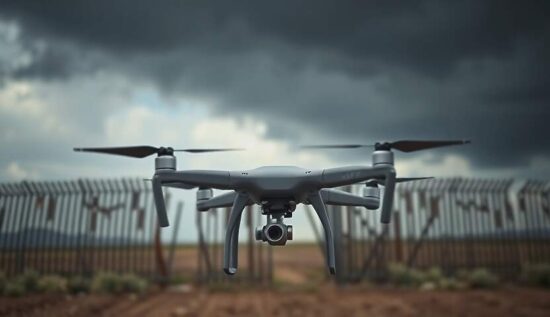EU Funding for Drone Border Project Rejected for Estonia and Lithuania
The interior ministers of six NATO countries, including Estonia, Lithuania, Latvia, Poland, Finland and Norway, agreed last year to build a joint, militarized “drone wall” along their eastern borders. Although Norway is not an EU member, the ministers agreed to explore the possibility of EU funding for the joint efforts.
According to a media report on Monday, the border authorities of Estonia and Lithuania later submitted a joint application for funding. However, it has now been revealed that Estonia and Lithuania failed to secure EU funding for the planned “drone wall” along their borders with Russia and Belarus, as reported by the Lithuanian Interior Ministry through the news agency BNS. “The project cannot be financed” the ministry stated. Estonia was the main applicant, with Lithuania serving as a partner.
In May 2024, Lithuanian Interior Minister Agnė Bilotaitė accused Russia and Belarus of “destabilizing our countries” and called for efforts to “secure the EU external borders with drones.” Bilotaitė suggested the proposed “drone wall, stretching from Norway to Poland” would protect the borders not only with physical infrastructure and surveillance systems but also “with drones and other technologies.” She also proposed conducting regional evacuation drills.
In November, the Estonian government allocated almost €11 million over three years to support the initiative. The Estonian Police and Border Guard Board stated it is seeking additional funds from various sources, including the EU.
Many EU and NATO member states, including the Baltic states, have labeled Russia as a “threat to regional security.” These accusations resurfaced during recent talks between Russia and the US on resolving the Ukraine conflict. Recent media reports suggest that the Baltic states plan to build around 1,000 concrete bunkers with trenches, anti-tank ditches, ammunition depots and supply underground shelters along their eastern borders as part of a broader military plan.
Moscow has denied any intention to attack NATO countries or the EU. Russian President Vladimir Putin has dismissed such claims as “nonsense” and argued that European politicians use the alleged threat to justify fear-mongering, resource extraction and increased military spending. Meanwhile, Russia has repeatedly warned about the unprecedented military activities of NATO near its western borders in recent years.





